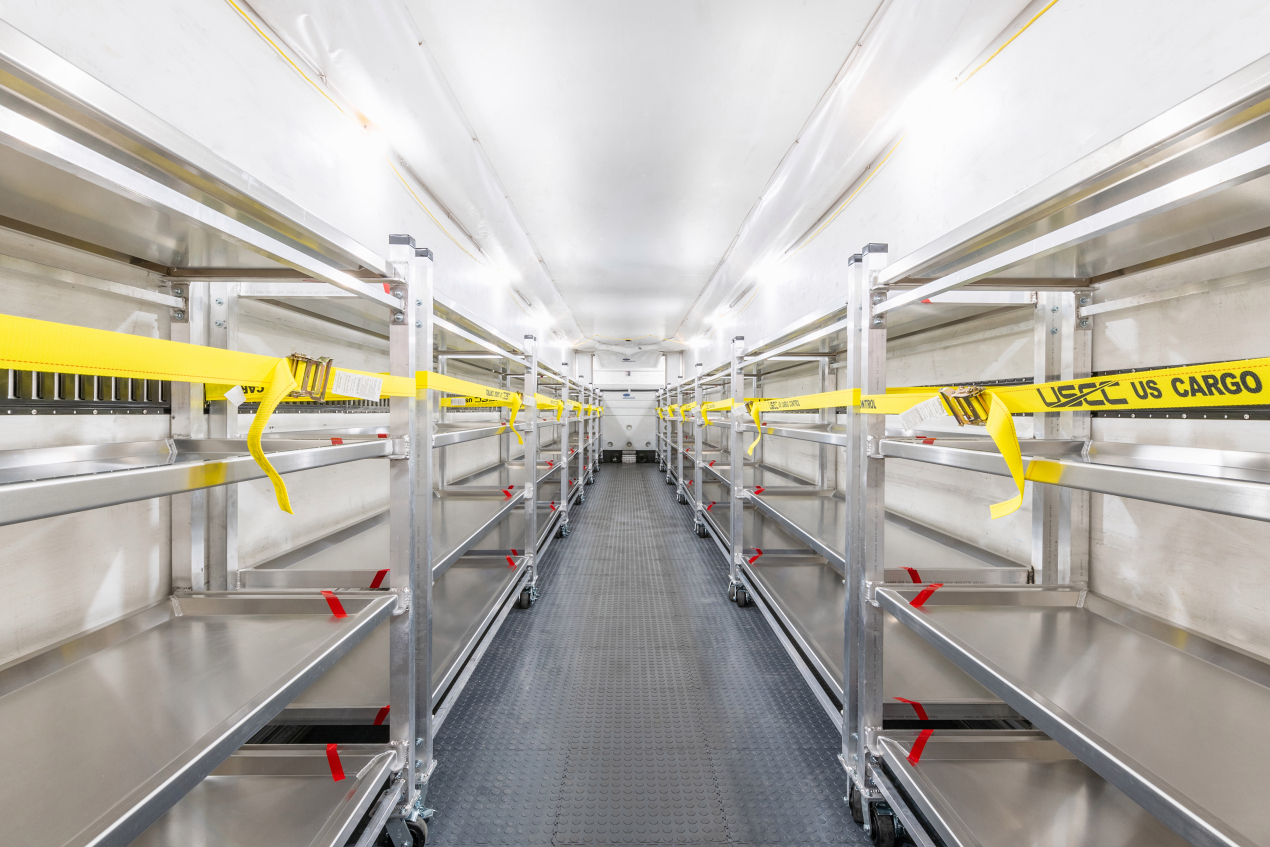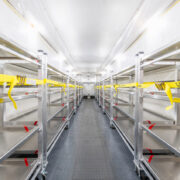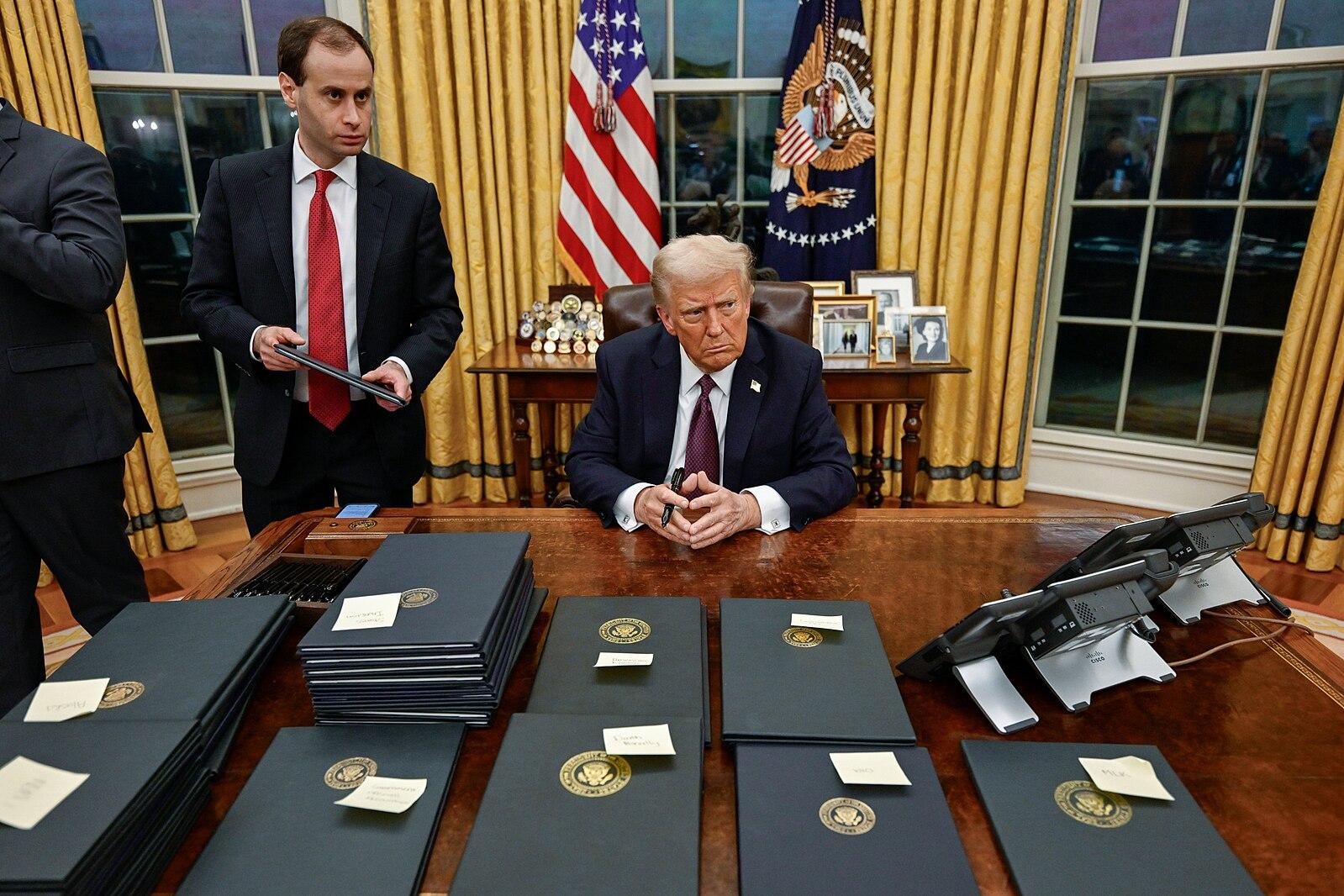
By Cindy Loose/Kaiser Health News
Funeral director Kevin Spitzer has been overwhelmed with COVID-related deaths in the small city of Aberdeen, South Dakota.
He and his two colleagues at the Spitzer-Miller Funeral Home have been working 12-15 hours a day, seven days a week, to keep up with the demand in the community of 26,000.
The funerals are sparsely attended, which would have been unthinkable before the pandemic.
“We had a funeral for a younger man one recent Saturday, and not 20 people came, because most everyone was just afraid,” he said.
As COVID-19 has spread from big cities to rural communities, it has stressed not only hospitals, but also what some euphemistically call “last responders.” The crush has overwhelmed morgues, funeral homes and religious leaders, required ingenuity and even changed the rituals of honoring the dead.
Officials in many smaller cities and towns learned from seeing the overflow of bodies during last spring’s first wave of COVID deaths in places such as Detroit, where nurses at Detroit Medical Center Sinai-Grace Hospital alerted the media to bodies accumulating in hospital storage rooms. They watched as New York hospitals and funeral homes marshaled refrigerated trucks to store bodies. More than 600 bodies of people who died in the spring COVID surge remain in freezer trucks on the Brooklyn waterfront because officials can’t find next of kin, or relatives are also sick or unable to pay for burial.
People like Dr. Robert Kurtzman, Montana’s chief medical examiner, took heed. Last spring, he worked with funeral directors and others to study the state’s morgue capacity.
After looking at COVID projections, the state arranged with the Montana National Guard to have 13 refrigerated semitrucks ready to dispatch anywhere in the state.
“We are already in a precarious position, and the projections present a scary proposition,” he said. “We need to be ready for worst-case scenarios.”
Chad Towner, CEO of St. Joseph Health System, which has two hospitals in northern Indiana, ordered two refrigerated semitrailers in April. For a time, things were relatively quiet. But the pandemic has hit.
“I told a friend who was a COVID doubter that if my wife needed a bed today, I could not arrange one. That’s the dire situation we face here,” Towner said. “All our competitors in the area are in the same boat, and we’re working together instead of competing.”
Although the freezer trucks have not yet been needed, he worries that the sharp increase in cases, and those anticipated from holiday gatherings, will make last-resort measures necessary.
“We recently had four deaths in one afternoon,” said Towner. “A priest approached me to say he’d been asked to provide last rites to three patients in one hour.”
Moving bodies from the hospital morgue is a slower process than usual, he said.
“Morticians and funeral homes are overflowing as well. Families that are sick or quarantined at the time of the loved one’s death often can’t work with us on a transfer, meaning bodies are here longer. The entire system is stressed to the tipping point,” said Towner.
Private enterprise has created a solution for smaller communities. In Bozeman, Montana, a specialty truck company has retrofitted trailers that can be pulled by an SUV or a pickup.
Acela Truck Co. has already sold hundreds of the pull-behind refrigerated units created in response to the COVID pandemic. They range from 9 to 53 feet and have racks that each hold four body trays. “We’re very busy and have orders in all of the lower 48 states,” said CEO David Ronsen. Acela has partnered with Mopec, a Michigan autopsy supply company, to help sell and deliver the new product.
Billings Clinic in Montana also anticipated a flood of deaths last spring by reserving a semitrailer for delivery, if needed. The clinic, which has just two morgue spaces, has dealt with 80 COVID deaths, including seven on the weekend after Thanksgiving.
Chief Nursing Officer Laurie Smith said the hospital is at capacity, despite adding beds by converting office space and building an addition. The hospital, which currently has 335 beds, so far has handled the additional deaths through what she calls a “sad partnership” with funeral homes, which have been quickly picking up bodies the hospital cannot store.
The hospital does its best to allow relatives to say goodbye, but that often involves family members standing at an interior window outside the patient’s room, using a computer tablet to communicate their last words.
That is just one way in which the rituals of grieving have changed during the COVID pandemic.
Typical congregational hymns are pretty much gone, as are choirs.
“We are using mostly recordings, sometimes a soloist,” said Spitzer.
This story was produced by KHN (Kaiser Health News), which publishes California Healthline, an editorially independent service of the California Health Care Foundation. KHN is not affiliated with Kaiser Permanente.





